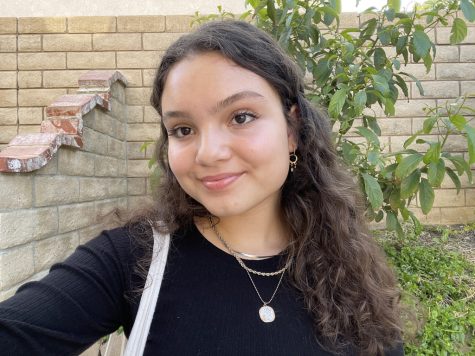Kindness: The Key to Unifying a Divided America
Critical Essay
The Tower of Babel: a biblical story that directly exhibits the tribulations that stem from a lack of kindness and unity.
February 28, 2022
The biblical story of the Tower of Babel attempts to rationalize the origins of diverse language – but I believe an underlying lesson of kindness is hidden between the lines. The Tower of Babel is a structure built by Babylonians in an attempt to reach heaven to achieve fame in the land of Shinar. However, God disrupted these efforts by making each worker capable of speaking only one language, each different from one another. As a result of a lack of communication, the tower was never finished, and these workers dispersed throughout the world. These individual workers, each unable to talk to one another, represent the societally engineered castes that prevail in modern society. A lack of connection between these groups exists because each “in-group” is encouraged to uphold its separate identity, resulting in a split nation. However, the problem lies not in the fact that our nation is divided, rather in the imbalance of these divisions, which has driven discrimination, racism, and heated debates for countless decades. To bridge the gaps between these isolated groups, we must all unite under a sole language: kindness. A radical implementation of kindness in the United States would enable acceptance of groups outside of our own, creating a balanced emphasis on diversity, ultimately cultivating a greater sense of unity amongst the American people. After studying numerous articles, I have developed a unique idea on how I believe kindness holds the ability to reunite a divided America. I will talk about three societal barriers kindness has the power to eliminate: political, economical, and social constructs.
To begin, kindness may be able to eliminate extreme polarization. Prior to the 2016 presidential election, it was mainstream to hear people say that while political leaders were polarized, the general public was not a reflection of that division. However, if there is anything that 2020 has taught us, it is that America is deeply divided, especially politically. Amidst the Covid-19 pandemic and Black Lives Matter Protests, Republicans and Democrats found it impossible to reach any consensus. To illustrate this disparity, research conducted at Pew Research Center states that in 2012, fewer than 50% of Americans thought that “very strong conflicts” existed between Democrats and Republicans. By 2020, this number rose to a perspicuous 70%. Extreme polarization plagues America and plays a major threat to our democracy. Rather than simply agreeing to disagree on policy issues, Democrats and Republicans fear that the domination of their counterparty will lead to a corrupt nation. It is this very fear that tears democracy apart.
To understand how to unite political parties, we must first take a look at their origins. Familiar relations constitute the groundwork of our existence. Since existence is good, we perceive its foundation to be good. From a young age, we develop a sense of loyalty to these groups prior to learning what our membership signifies – how Christians differ from atheists or Democrats differ from Republicans. Our parents, nation, race, religion, neighborhood, and social traditions are just a few examples of the in-groups we affiliate with. The existence of in-groups guarantees corresponding out-groups, and these factions, according to the French biologist Felix le Dantec, must maintain a common enemy to have an established sense of unity – such as when a school unites during an athletic event under a common goal: defeating the enemy. This constructs an “us versus them” mentality in political groups. As a result of this prejudice, most people do not interact with individuals belonging to outgroups – such as political parties. Thus, people are bound to consume the biased, misinformation that plagues the media about their counterparty. One way kindness can mitigate extreme political polarization is simply by transforming social media culture to a more objective one. Kindness is defined by the Cambridge dictionary as “the quality of being generous, helpful, and caring about other people.” In applying these principles to social media, regular people can exercise mindfulness. Cyber attacks and misinformation often manifest in posts that mock or attack opponents. This type of content is far more likely to garner engagement, causing it to amplify in popularity. Social media often exhibits a false sense of divide because of this.
Kindness can be used as a weapon to tackle this specific political issue. A study conducted by Cambridge University dissecting the link between polarization and incivility suggests that kind messages on social media increased trust and reduced polarization, even when people disagreed on policy manners. This clearly illustrates the connection between empathy and political unity. Rachel Kleinfeld, a senior fellow in the Democracy, Conflict, and Governance Program suggests three methods to successfully encourage kindness on social media. First, one can remind users of the real-world consequences that arise from hateful posts. Second, attempt to form an empathetic connection with the writer to educate them. Finally, counteract a hateful post with a humorous one to defuse the spread of hatred.
Additionally, kindness can tackle underlying economic disparities. It is no secret that money is a great divider. Disparities between the impoverished and the affluent have prevailed since the beginning of currency. This may just have to do with the government’s limited involvement in the economy. The United States is a mixed economy – a hybrid of capitalistic and socialistic ideologies. While means of production are privately owned and operate for profit – which is a capitalist principle–, the government has partial control over education, roads, health care, and postal deliveries. An inherent ingredient to capitalism is inequality. While profit motive and work incentive can be viewed as fair roots of economical imbalance, there are other types of inequality in capitalism that subordinates (workers and consumers) cannot control. Under capitalism, a firm has the potential to develop monopoly power, which gives it the ability to force consumers to pay abnormally high prices for a firm-exclusive product or service. A monopoly will also likely lead to a monopsony, where a sole employer in the labor market essentially controls the wages of their workers. Workers are then forced to work for a low wage. Additionally, inheritance allows for wealth and property to be passed on from one generation to the next, allowing the successor to gain advantages without exerting any effort. Heirs have access to top-tier education and jobs simply because of their bloodline.
These economic divides mean that there isn’t a level playing field. Those who get the short end of the stick are forced to deal with the negative repercussions that follow. However, the government may be able to help by offering aid in education costs such as college tuition and student loan debt, along with ameliorating the public education system in our nation. This may include increasing teacher funding and support and implementing a progressive tax code. Greater benefits to the low-income population would help to unite a divided America by equating the opportunities available to these two socio-economic segments. Ultimately, sharing the wealth and prosperity of these two groups would be the government’s way of using kindness as a unifying influence.
Furthermore, social reforms driven by kindness may be the medicine to balancing societal divides amongst different groups. Empathy, a basic principle of kindness, has the power to foster a culture of understanding between various societal groups. In the book, The War For Kindness: Building Empathy in a Fractured World, Jamil Zaki, the director of the Social Neuroscience Lab at Stanford University, argues that empathy is something that can be taught. Empathy, a founding principle of kindness, would aid in reconstructing communal interactions in such a way that helps societies overcome cultural divisions, racism, and anti-immigration sentiments, and help people get along more. Zaki suggests that one way to advance efforts in redesigning our communities would be to bring people from various groups under egalitarian circumstances with shared goals to enable people to view “outsiders” as more than a symbol of a counterparty. This would cultivate an understanding of worldviews different from our own because it would help people eliminate prejudice of other groups.
Studies show that these empathetic interactions can be conducted by any person. In Zaki’s book, he tells the story of a neo-Nazi named Tony McAleer – an evil man filled with hatred and anger. Despite his nefarious disposition, McAleer reformed after meeting a Jewish man who refused to hate him. This story demonstrates two principles: one, the effectiveness of displaying kindness and empathy to someone different from you, and two, everyone has the capacity to be kind.
Finally, the validity of these social reforms lies in the fact that kindness is contagious. Moral elevation is an emotional response people experience after witnessing virtuous behaviors. This response encourages people to perform kind actions themselves. Researchers at Berkeley wanted to find out the extent to which one’s altruism increases after witnessing prosocial behavior. After analyzing the results of 88 experimental studies involving over 25,000 participants, researchers found a statistically significant relationship between this cause-and-effect model, meaning that kindness is undeniably infectious.
This phenomenon demonstrates a ripple effect that transpires when a single person performs the most minute kind act. Using kindness to drive social change is made possible by people’s prosocial nature, and may just be the key to unlocking a more unified country.
To conclude, I would like to leave you with a summarizing quote: “America is enriched by diversity. It is preserved by unity.” It is crucial to recognize that our differences and divisions are something to be celebrated, not eliminated. However, the emphasis on these societal divisions has grown imbalanced, creating uneasy relationships between social, political, and economic groups. A radical implementation of kindness is the key to rectifying our current state of cultural unrest.




